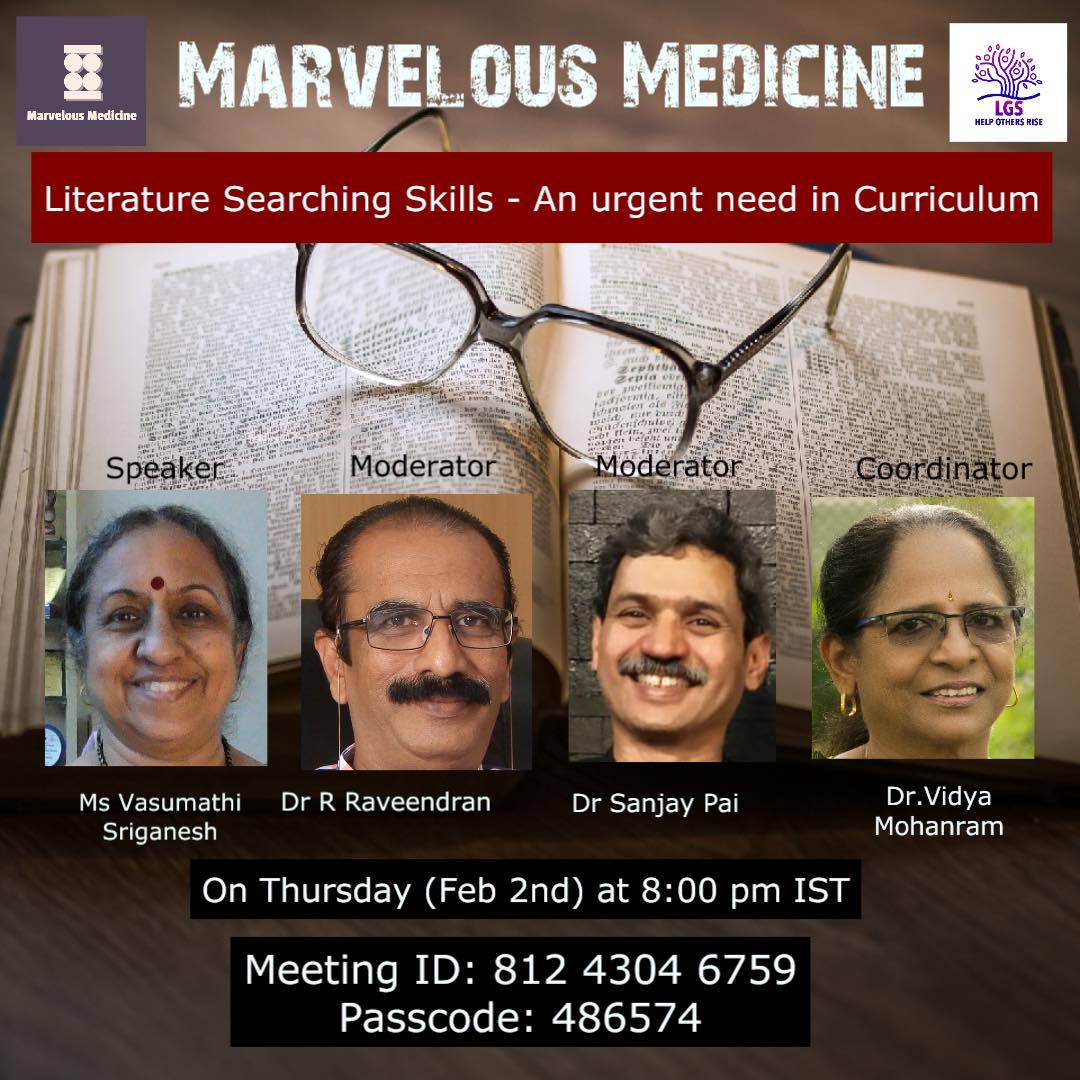When in school, I wanted to study Medicine. I could not pursue this field, for a number of personal reasons. My family humorously mentions that I got into Medicine “through the back door”. That is true – my life has just evolved in this profession.
To the extent that I recently had an opportunity to speak about introducing a change in the curriculum.
A friend of mine – Dr Ravi Shankar, is an alumnus from my school. We have been in touch over years. He recently happened to read one of my LinkedIn posts highlighting an interesting article about ethics in authorship. He asked me if I would speak at the “Marvelous Medicine Series”.
He went on to tell me more about the lecture series. It was an initiative that was started by alumni from JIPMER, Puducherry (he is an alumnus from that college), during the Pandemic. The series became so popular that it has continued later on too. Every Wednesday they have a talk by someone on a core medical topic or on something useful for the health professions.
I was delighted to learn about this and accepted the invitation. Dr Ravi introduced me to Dr Vidya who coordinated the show. The three of us had a quick discussion and they were happy to accept my topic:
Literature Searching Skills: An Urgent Need in the Curriculum
This event was an opportunity to appeal to a large number of doctors – and get them interested in our Mission. I had to make sure that I had the best of content and that I should definitely finish it in the allotted time, keeping people well engaged. I took a good two days to prepare for it – right from preparing a mind-map plan, to revising the slides a number of times and rehearsing the timings.
I shared with the audience – some of the observations I had made in the profession. About many students and professionals losing precious time. They did not have the exposure to the skills of structured searching and referencing. From residents struggling with their theses – to doctors battling with correct referencing – to those who needed advanced help with their systematic review searches.
I gave them a glimpse of what these skills were and how they made a difference. Both in terms of time (national hours) saved, and about the better basis for research. I talked about QMed’s work. I told them why we felt that it was important to learn these skills right from the UG stage and not later. Finally, I asked them to connect with me to share their inputs – telling them that it was vital that we collaborated and approached the commissions and councils together.
I finished my presentation in the allotted 40-45 minutes and then enjoyed the discussions that followed. It was wonderful that senior faculty and practitioners appreciated the talk and agreed with this need. The chat window was flooded with comments about the need to include these skills in the UG stage. We also had related discussions – deliberated about the possibility of AI taking over in future. (Yes – we need to be open to that!). T
I now await the recording of the session, so that we could share it with a larger audience and get more people involved in our quest – getting the National Medical Commission to implement our teaching in all medical colleges. After all, they have mentioned in their Foundation Course document (page 64):
Students should be introduced to the basic use of word and power point, familiar with search engines, in performing a literature search and accessing online resources.


